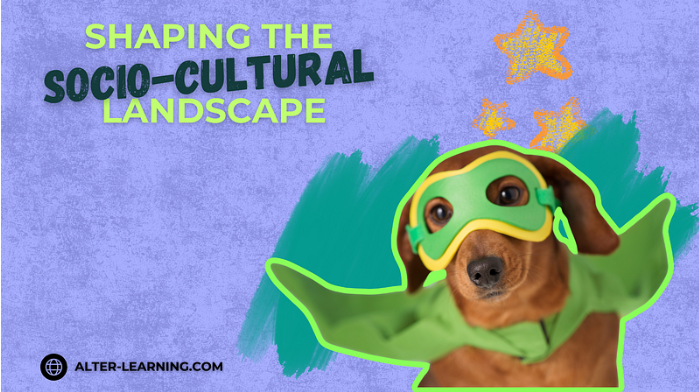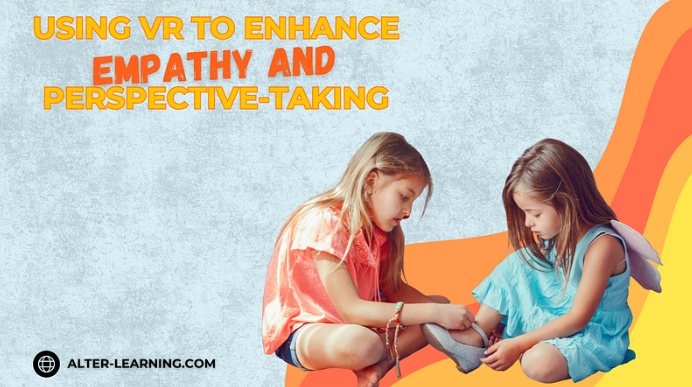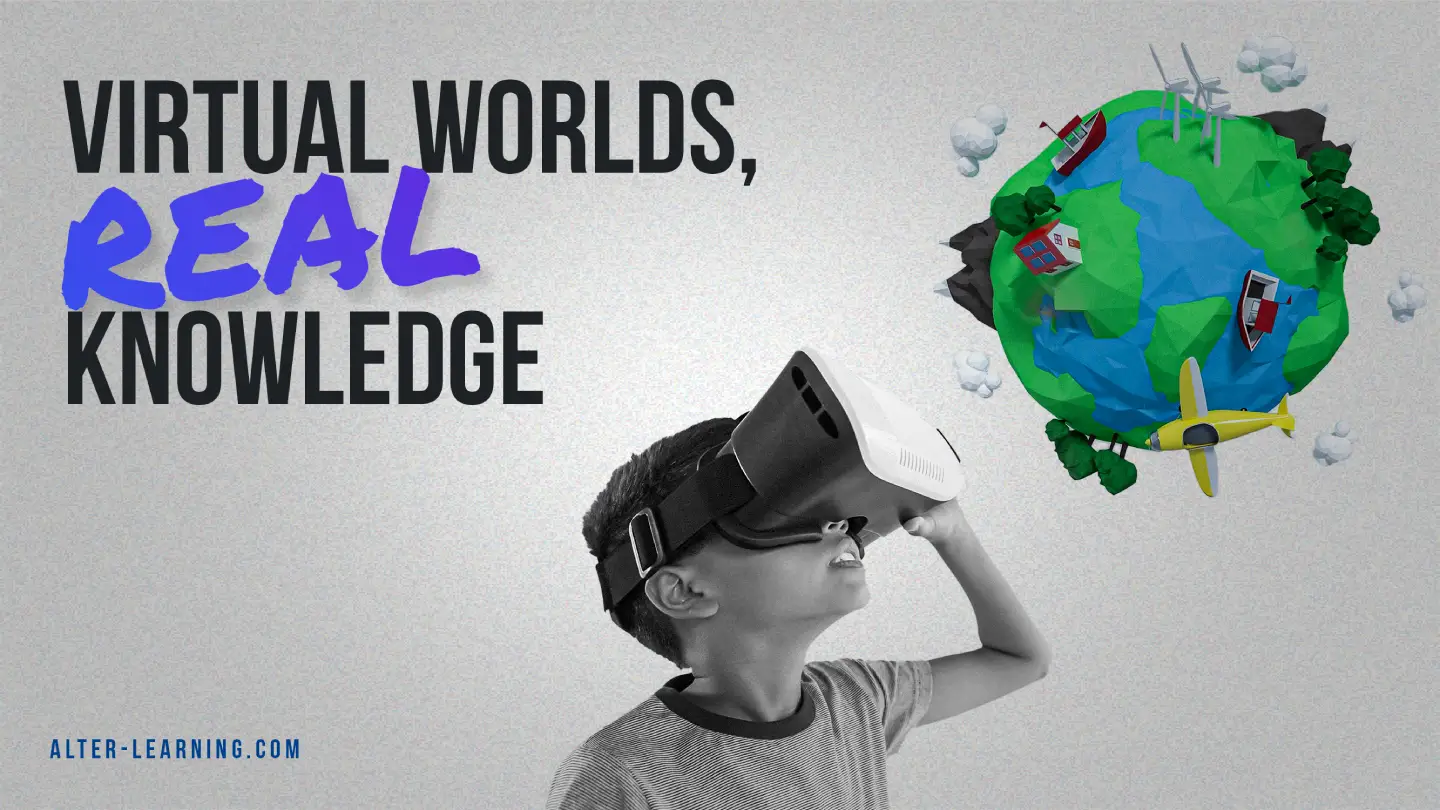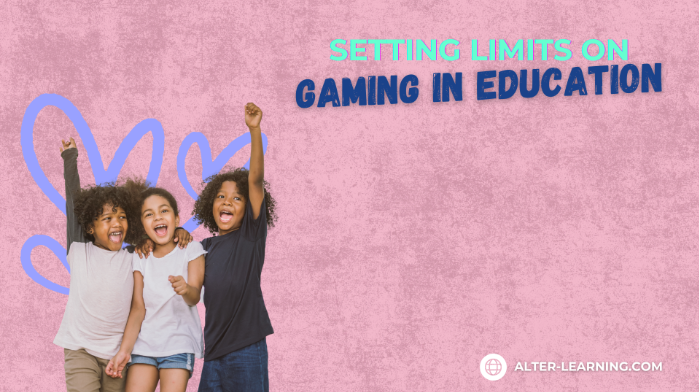By Krista Shepard
Educational technology (EdTech) is doing far more than streamlining classrooms — it’s reshaping the very fabric of how students around the globe learn about each other. With platforms like Alter-Learning, students can now explore cultures, histories, and perspectives far beyond the walls of their schools. By integrating digital tools that promote empathy, cultural understanding, and inclusivity, EdTech is helping to build a more connected, tolerant, and informed generation.
From Local Classrooms to Global Perspectives
One of the most potent aspects of EdTech in global education is its ability to remove physical boundaries. Through Alter-Learning’s immersive learning tools, students can explore traditions from India, art from West Africa, or architecture in ancient Rome — without ever boarding a plane. These experiences, which may previously have been accessible only through textbooks or documentaries, are now interactive and emotionally engaging.
By leveraging culturally rich content modules and collaborative projects, Alter-Learning enables students in different parts of the world to learn together. Whether it’s a digital festival experience or a shared online debate about climate policy, learners gain an appreciation for different perspectives, reinforcing global citizenship.
Fostering Cultural Sensitivity in the Digital Age
The responsible use of educational technology is essential to its success in fostering cultural understanding. Alter-Learning is committed to curating authentic, respectful content that highlights the diversity of global cultures. Rather than oversimplifying or stereotyping cultural practices, the platform emphasizes context and accuracy, helping students understand the “why” behind traditions, not just the “what.”
Educators are encouraged to integrate these modules with thoughtful discussions and critical thinking exercises that go beyond surface-level observations. In doing so, EdTech becomes a medium for deep empathy and cultural literacy.
Championing Inclusivity Through Innovation
Inclusivity in education is more than just a buzzword — it’s a guiding principle of Alter-Learning’s platform design. EdTech enables students of all abilities and backgrounds to participate in meaningful learning experiences. For example:
- Students with mobility challenges can explore digital replicas of historical landmarks.
- Learners with dyslexia or autism can benefit from customized interfaces and sensory-friendly content.
- Multi-language support ensures that students across linguistic backgrounds can engage with content in ways that are most effective for them.
In this way, EdTech serves as a leveling tool, breaking down barriers that often limit access to quality education.
Global Collaboration in the Digital Classroom
Alter-Learning facilitates international collaboration, allowing students from different continents to work together on shared projects and discussions. Collaboration not only boosts engagement but also encourages cultural exchange and cooperation, key skills in today’s interconnected world.
From language exchange clubs to virtual environmental summits, these digital experiences foster real-world connections, teaching students that their voices can extend far beyond the classroom.
Addressing the Challenges of Global EdTech Integration
Despite the promise of EdTech, several challenges persist:
- Cost and Access: Not all schools have the infrastructure or funding for advanced digital tools.
- Content Quality: There is an ongoing need for culturally accurate, well-researched content.
- Teacher Training: Educators must be equipped to use these tools effectively and responsibly.
Alter-Learning actively works to overcome these barriers by offering low-bandwidth-compatible content, professional development resources for educators, and equity-focused initiatives that prioritize underserved communities.
Policy and Research: Building a Framework for Responsible Growth
Collaboration with policymakers and researchers is essential to ensure EdTech’s sustainable and ethical integration. Alter-Learning supports initiatives to:
- Standardize content quality and cultural representation
- Support research into the impact of immersive education
- Promote accessibility for all learners, regardless of geography or socio-economic background.
Moving Forward, Alter Learning is Building a More Connected World Through EdTech
EdTech is reshaping global education, not just by delivering content, but by connecting hearts and minds across borders. Through platforms like Alter-Learning, students are learning more than facts — they’re developing compassion, cultural awareness, and a global outlook. With a commitment to inclusivity, accuracy, and accessibility, EdTech holds the key to a future where education truly unites us all.
Follow Alter-Learning for more insights into immersive education, edtech success stories, and the future of learning. Want to explore how VR/AR could transform your school or learning platform? Let’s connect.




